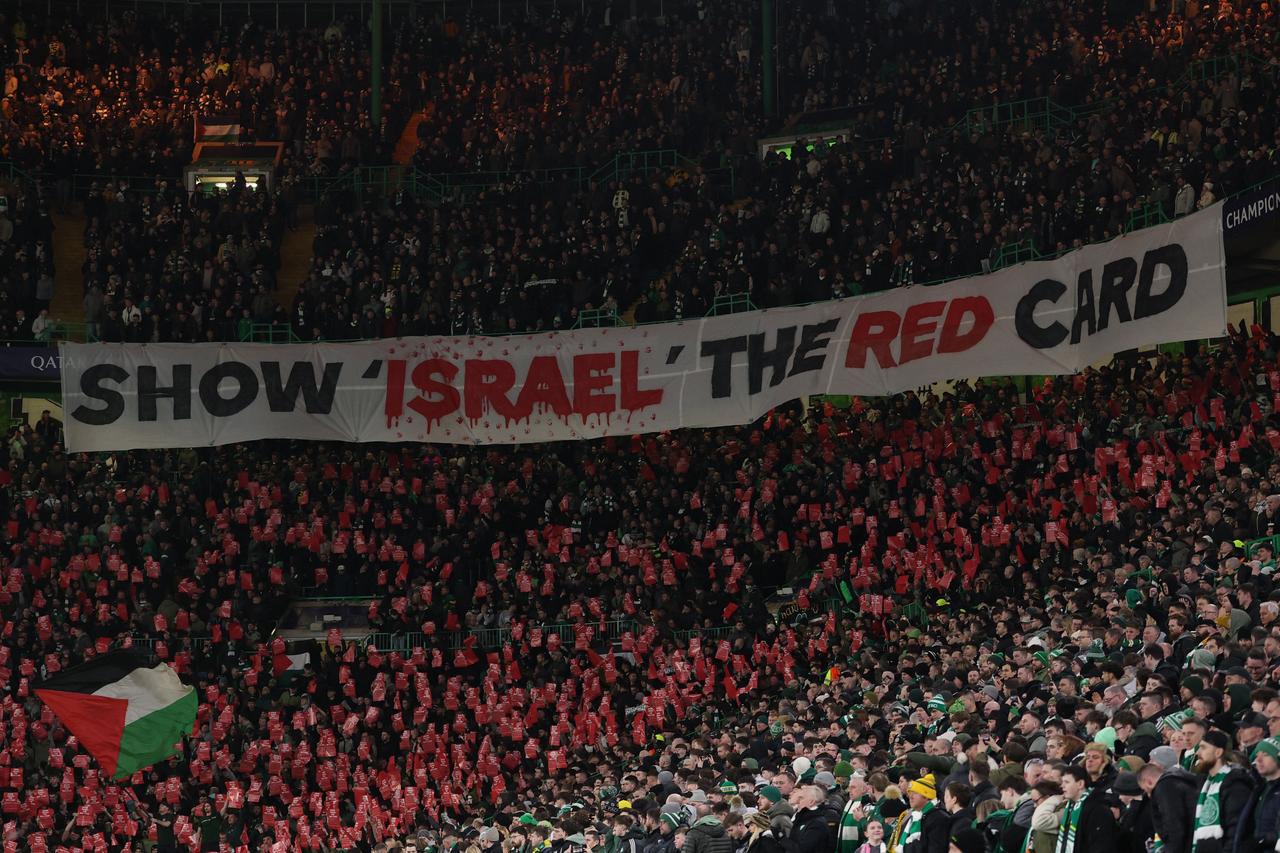
UEFA’s executive committee is set to vote Tuesday on whether to suspend Israel’s national team and club sides from all European competitions.
Qatar is reportedly leading a push to bring the motion to a vote, lobbying UEFA members over the past week to secure a majority.
Only a handful of countries are reportedly opposing the measure, with most members favoring Israel’s removal. Meanwhile, the Israel Football Association has been actively lobbying UEFA officials and using diplomatic channels to prevent the issue from reaching a vote.
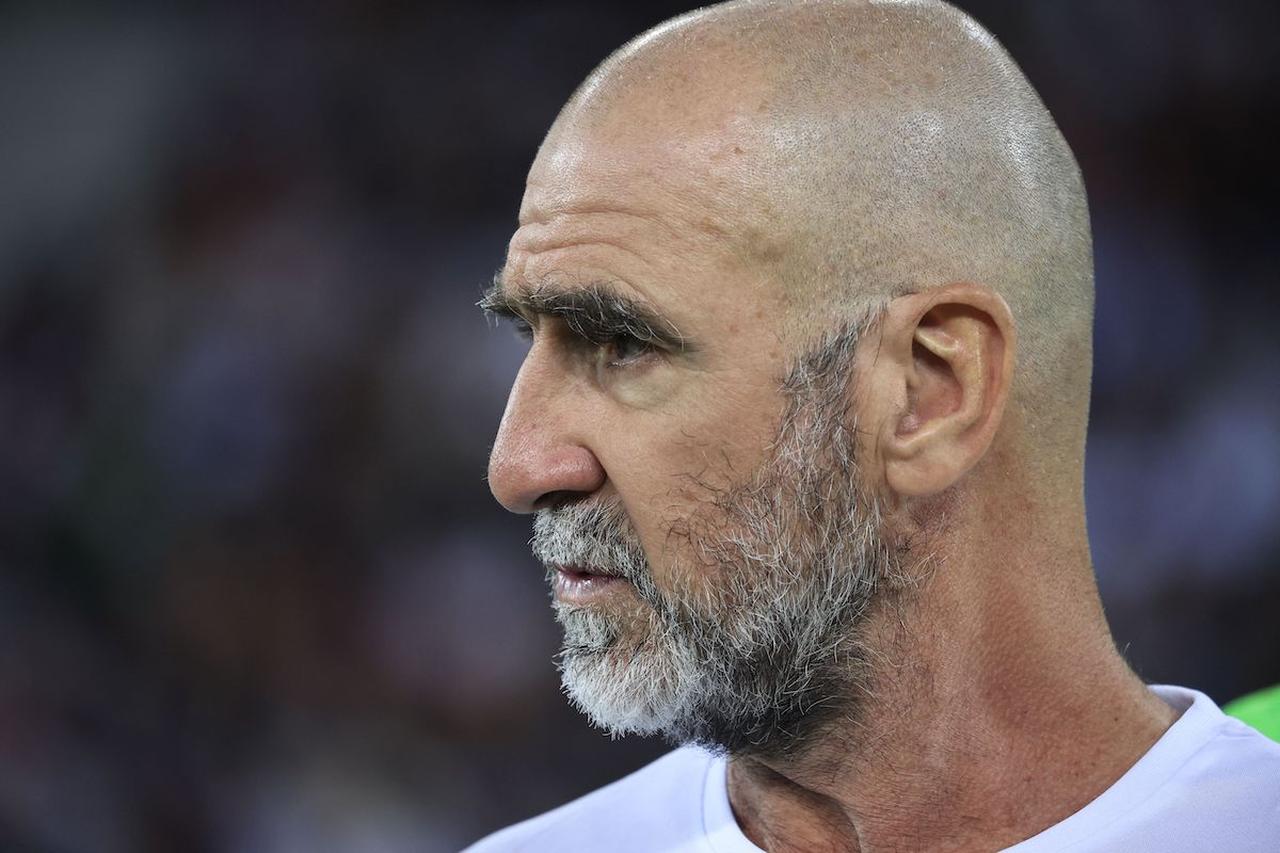
Former Manchester United star Eric Cantona has urged FIFA and UEFA to ban Israel from international football, drawing comparisons to Russia. Cantona referenced UEFA’s 2022 suspension of Russian teams following the invasion of Ukraine, noting that the ban remains in effect and has prevented Russia from participating in the 2026 World Cup.
Speaking at the “Together for Palestine” concert at Wembley’s OVO Arena, which featured musicians Damon Albarn, Bastille, and PinkPantheress alongside actor Benedict Cumberbatch, Cantona said: “Four days after Russia started the war in Ukraine, FIFA and UEFA suspended Russia. We are now 716 days into what Amnesty International has called a genocide. And yet, Israel continues to be allowed to participate.”
https://x.com/MoSalah/status/1954215423861240020
The debate has also drawn attention from players. Former Palestinian national footballer Suleiman al-Obaid was killed in Gaza while waiting for humanitarian aid. UEFA posted a tribute but did not mention the cause of death or the Israeli airstrike responsible. Mohamed Salah (Liverpool & Egypt) challenged UEFA directly on X (formerly Twitter), asking:
“Can you tell us how, where and why he was killed?”
Salah’s post went viral, receiving over 100 million views and more than 1 million likes, sparking widespread discussion about UEFA’s neutrality and the role of athletes in political discourse.
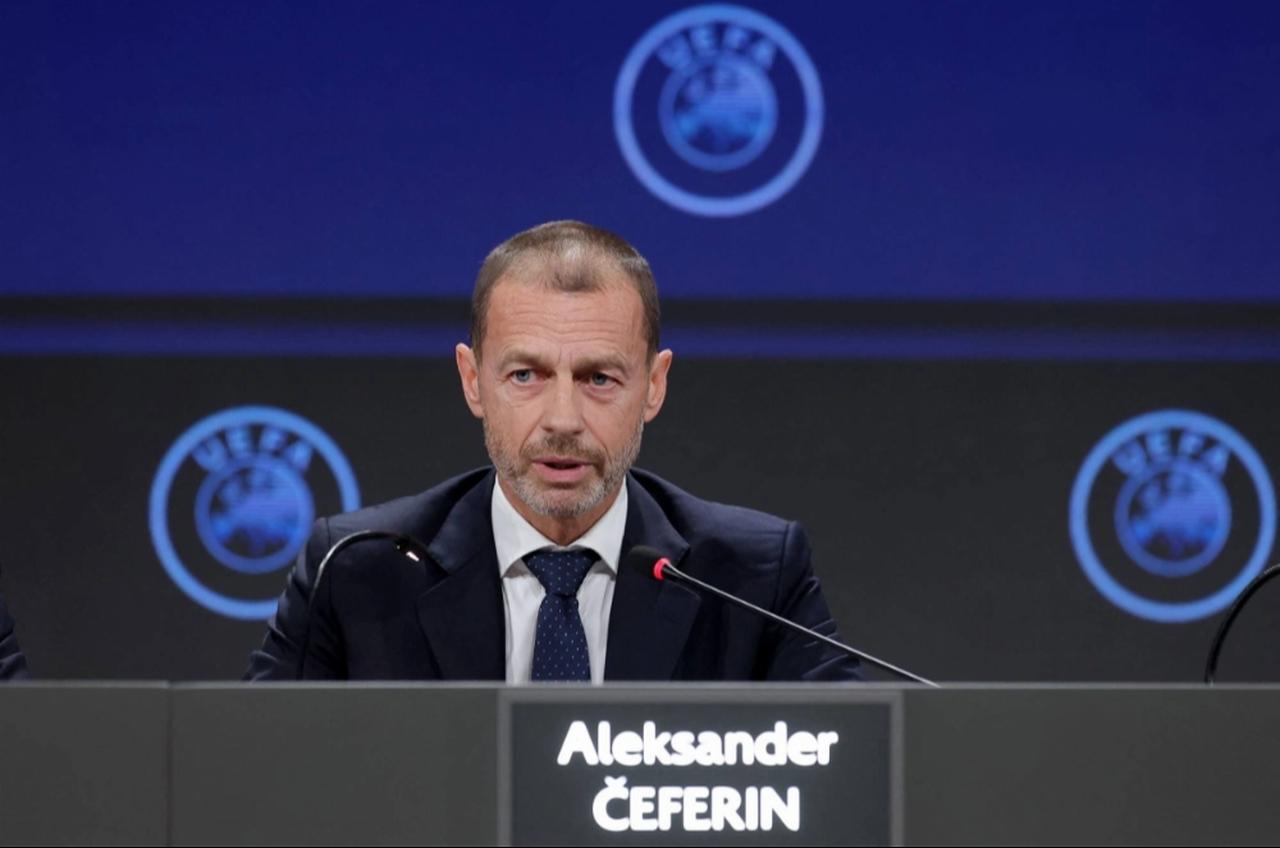
UEFA President Aleksander Ceferin has defended the decision not to ban Israel, arguing that athletes should not be penalized for government actions. In an interview with Politico, Ceferin said: “What can an athlete do to their government to stop the war? It’s very, very hard. The ban for Russian teams has lasted three and a half years. Did the Ukraine war stop? It didn’t.”
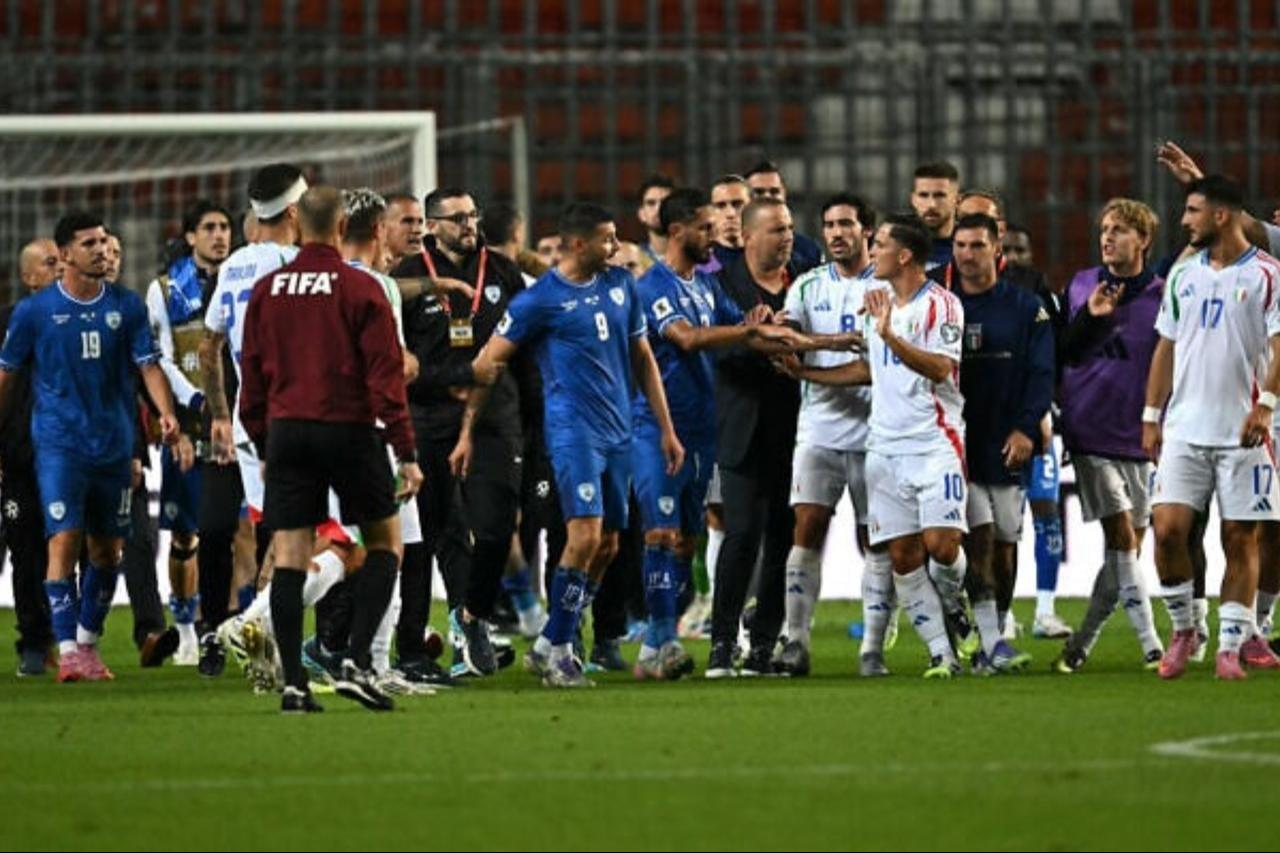
Despite the ongoing debate, Israel continues to participate in international football. The national team recently lost 5-4 to Italy in a World Cup qualifier, while Maccabi Tel-Aviv will compete in this year’s UEFA Europa League, including a November match in England against Aston Villa.
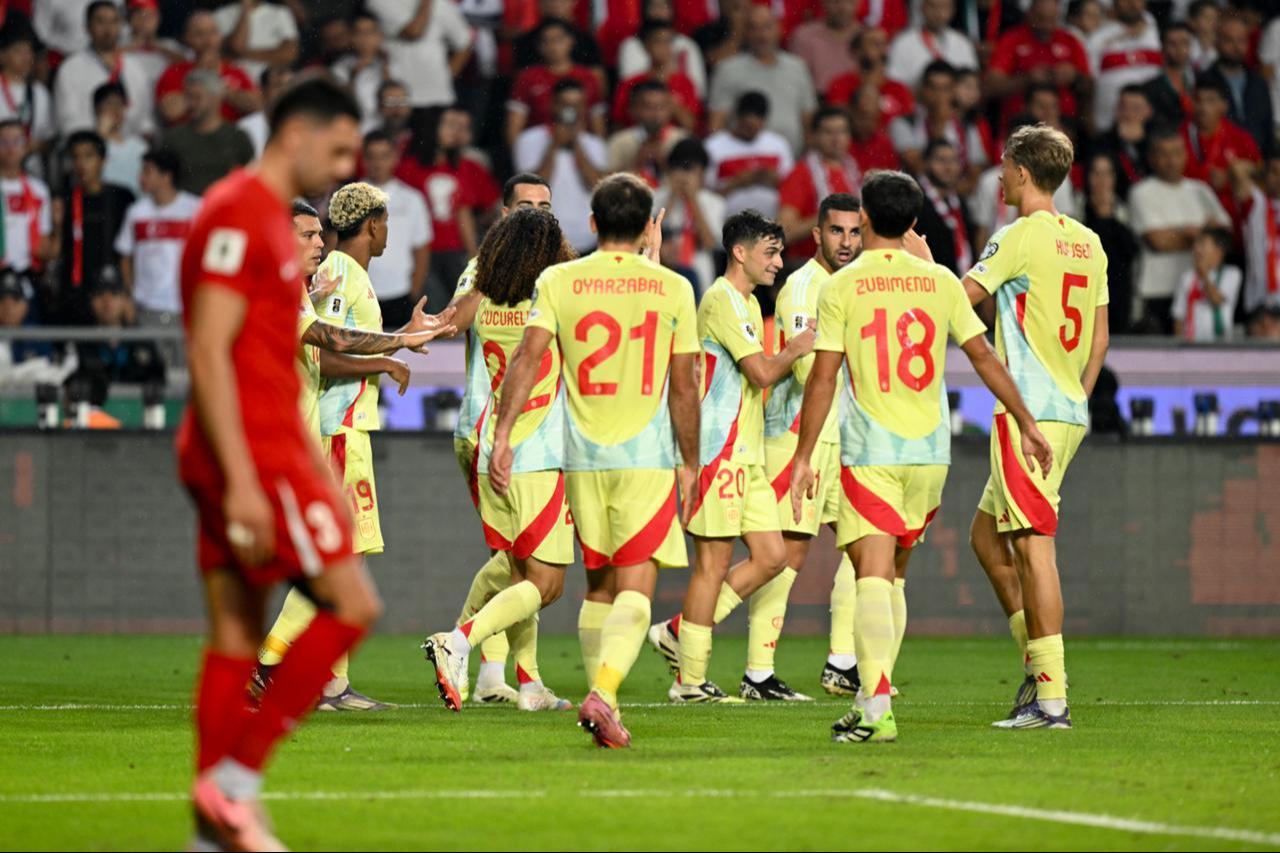
Spanish officials have indicated that their participation in the 2026 FIFA World Cup, to be hosted in the United States, Canada, and Mexico, could be contingent on Israel’s inclusion. Patxi Lopez, spokesman for Spain’s Socialist Group in Congress, suggested a potential boycott, linking the political situation in Gaza to Spain’s sporting commitments.
Lopez condemned Israel’s actions in Gaza, describing the violence as genocide: “Seeing children killed, people shot while searching for food because they are starving to death, cities destroyed … or seeing an entire people wiped out — that’s genocide,” he said.
| Year / Event | Country | Reason for Sanction | Duration / Outcome |
|---|---|---|---|
| 1920 Antwerp Olympics | Germany, Austria, Hungary, Bulgaria, Türkiye | Roles as Central Powers in World War I | Excluded from Olympics; faced political isolation |
| 1948 London Olympics | Germany, Japan | Wartime aggression in World War II | Later reintegrated (Germany 1952, Japan 1956) |
| 1964–1992 Olympics | South Africa | Apartheid policies | 28-year Olympic ban; returned after apartheid ended |
| 1972 Munich Olympics | Rhodesia (now Zimbabwe) | White minority rule and racist domestic policies | Excluded; African nations lobbied successfully |
| 2000 Sydney Olympics | Afghanistan | Taliban restrictions on women’s participation | Suspended; governance/human rights violations affected eligibility |
| 2015–2016 | Kuwait | Governmental interference in national Olympic Committee | IOC suspension; athletes competed under Olympic flag |
| 2015 | Indonesia | Government meddling in football federation | FIFA suspension; national teams barred from international matches |
| 1992 EURO | Yugoslavia | UN sanctions during Balkan conflicts | Excluded; Denmark replaced them and won the tournament |
| 2001 FIFA | Afghanistan | Taliban restrictions, governance issues | Suspended; reinstated after regime change |
| 2019–2023 | Russia | State-backed doping uncovered by WADA | Olympic & World Championship bans; athletes competed under neutral flag |
| 2022–present | Russia & Belarus | Ukraine war | FIFA & UEFA suspensions; neutral status allowed in 2024 Paris Olympics |
| 2022–present | Russia (football) | Ukraine war | Excluded from 2026 World Cup qualifiers & UEFA tournaments |
The discussion over Israel’s potential suspension from UEFA competitions is not an isolated case. International sport has a long tradition of imposing sanctions on countries due to political, ethical, or humanitarian concerns. Examining historical precedents helps contextualize current debates and shows how global sporting bodies balance fairness, diplomacy, and accountability.
Historical precedents: Sport meets politics
Contemporary suspensions: Maintaining accountability
Football-specific bans: National and club levels